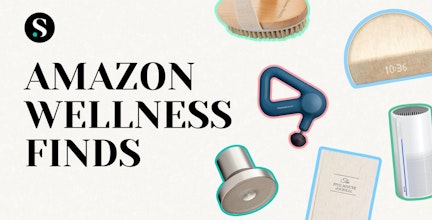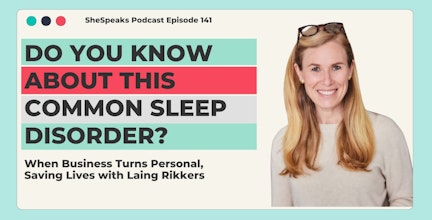Why Buy Organic?

Shelling out a few extra bucks to buy organic produce at the grocery store is something many have become willing to do for the possible health benefits. But exactly what health benefits we are getting by choosing organic foods over the others has yet to be explained. A new study released by the Annals of Internal Medicine analyzes the nutrition content of organic produce versus conventional foods and finds that there is no real difference. In other words, the same nutritional values can be found in both organic and non-organic apples.
Though the findings can be filed in the “good to know” category, the study does little to answer questions of how harmful the added pesticides in non-organic foods are to our health. Buying organic gives many people piece of mind for the sole reason that they are grown without the use of fertilizers and pesticides.
Harvard Health Publications reveals the findings from the study and what it means to those debating the benefits of eating organic foods. Though the pesticide levels found on both organic and non-organic foods are within the safety limits, non-organic foods usually have a 30% higher pesticide residue level than organic foods. What this means to our health is still up for debate. Dr. Michelle Hauser, a certified chef, nutrition educator, and clinical fellow in medicine at Harvard Medical School explains, “Just because these foods aren’t going over what they call an ‘acceptable limit’ doesn’t mean they’re safe for everyone. There haven’t been enough studies evaluating pesticide exposure to confirm the health effects, particularly in children and pregnant women.”
What do you think of the new study revealing that both organic and non-organic foods contain the same amount of nutrition?
Are you willing to pay extra for organic foods at the grocery store? Will the findings from this study change the way you shop?
Make a Comment
 by
countrycass21 | BROOKHAVEN, MS
by
countrycass21 | BROOKHAVEN, MSthe study doesn't surprise me. I dont look for organic products and will continue to shop like I always have. Price is a factor for me. People have been eating non organic foods for hundreds of years and they lived long lives so why would I change
 by
lawreeg67 | BELMONT, NH
by
lawreeg67 | BELMONT, NHI know someone who is a truck driver that insists Organic Food is a joke. He says trucks loaded with the product must be sprayed to stop the spread of anything on the produce. That being said, it may be organically grown but is being sprayed in the tractor trailer trucks. I don't waste my hard earned money on Organic anymore for this reason.
 by
marcela123456789 | BOCA RATON, FL
by
marcela123456789 | BOCA RATON, FLI LOVE ORGANIC FOOD IN SPECIAL FOR MY BABY :)
 by
noelrocs | LANCASTER, SC
by
noelrocs | LANCASTER, SCI just noticed the comment above mine :)
 by
noelrocs | LANCASTER, SC
by
noelrocs | LANCASTER, SCWe are on a ridiculously tight budget--due to recent circumstances--and I put back 5 items last week to buy organic, cage-free eggs; almond milk and natural butter. I don't care how little the amount of poison is, I don't want to purchase it. I try my best to buy things that are natural. If someone served your food at a restaurant and said, "I put just a little bit of poison in one of the plates, but don't worry, it's not enough to kill you," who would say, "oh, cool, i Love poison. Thanks!" yeah, you'd be *leaving, *complaining, *suing or *swapping plates around, right... There's no way to know what's causing the rise in many diseases, health conditions and epidemics and you better believe that studies will not be funded that make consumers stop purchasing certain products/from certain places etc. Propaganda, my friends... it's what the world runs on.
 by
mrsmclain | OSBURN, ID
by
mrsmclain | OSBURN, IDSounds like big business propaganda. Everyone knows that they have the same nutritional value, but do they have the same toxicisity (sp?). I just looked up this word on my Merriam-Webster dictionary app on my Iphone and found this definition: Toxicant: a toxic agent; especially: pesticide. (Ironic?) This is a better agruement for buying Organic than the study above, I think. We grow as many foods as we can what we can't we buy organic.
 by
rkosully | DOTHAN, AL
by
rkosully | DOTHAN, ALFirst, that study is flawed in many ways, but I won't open that can of worms. Second, the primary reason to buy organic food is to avoid contaminating the earth--and our bodies--with toxic pesticides. Therefore, I suspect the study will not change consumers' behavior very much.
 by
StaceeLynn | SPRING, TX
by
StaceeLynn | SPRING, TXI am willing to pay extra for organic foods and I do. For me the issue has never been that I believed the organic foods to be more nutritional, a carrot is a carrot. However an organically grown carrot doesn't have the pesticides that the non-organically grown carrot has. I can only speak for myself and my family but since we have switched to buying organic we have had fewer instances of illness and more energy. Harvard needs to conduct a study about the toxins we put into our bodies when we eat the non-organically grown foods.










_01252024061712.jpg?max-w=432&max-h=220&fit=crop&auto=format)

_10242023164832.jpg?max-w=432&max-h=220&fit=crop&auto=format)


_08172023152001.jpg?max-w=432&max-h=220&fit=crop&auto=format)


 (6)_07082023175312.jpg?max-w=432&max-h=220&fit=crop&auto=format)
 (1)_05192023144508.jpg?max-w=432&max-h=220&fit=crop&auto=format)

 (37)_05032023114523.jpg?max-w=432&max-h=220&fit=crop&auto=format)